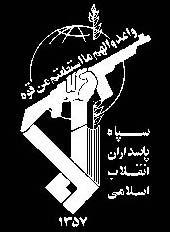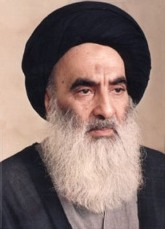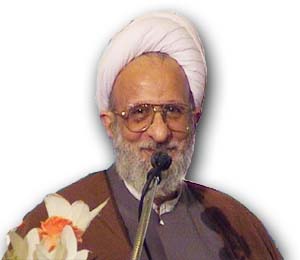Iranian Democracy
The United States Government State Department, in it "Country Reports on Human Rights Practices - 2005, has rather disingenuously and incipiently challenged the legitimacy of the 2005 Iranian presidential election:
"Ahmadinejad won the presidency in June in an election widely viewed as neither free nor fair."
Not only was the Iranian presidential free and fair is was markedly more so than either of the United States presidential elections won by George Walker Bush. Unlike the United States elections there has been no suggestion of vote rigging or electoral fraud, and the decision was not determined by the courts; President Ahmadinejad was unanimously elected, enjoying more than two thirds of the popular vote, where voter turnout for a second round was over sixty percent and voter turnout for the first round was larger still.
However the report tries to focus most of its criticism on the Iranian pre-electoral procedures:
"An unelected 12-member council of guardians reviewed all legislation passed by the majles for adherence to Islamic and constitutional principles and also screened presidential and majles candidates for eligibility. Prior to the June presidential elections, the guardian council excluded all but 8 candidates of the 1,014 who registered."An appointed committee of judges, judged the eligibility of presidential candidates in accordance with the law and the constitution. Female candidates were not permitted to stand for the position of President, but this is in accordance with the Iranian constitution and has wide popular support. No male candidate without sufficient popular support were not allowed to stand as candidates, this filtering process would be undemocratic, were it not for the fact that those disqualified were unable to demonstrate sufficient popular support, those who were able to do so were allowed to stand. Thus only candidates that were constitutionally barred from standing or lacked sufficient popular support were disqualified.
Contrast this to the United States: Iran directly elects her President, whereas the President of the United States is elected indirectly by the electoral college, which is again undemocratic, as certain electors have significantly more votes than others. The collegiate electoral system prevents a Presidential candidate without the support of one of the two major political parties from being elected to office. The corollary of which, is that only two candidates are effectively allowed to participate in the American Presidential election and to date no candidate for either the Republican or Democrat parties has been female. However, the United States also like Iran will exclude candidates on constitutional grounds as does every nation in the World, that adopts elected representative governance.
The report also is equally disingenuous with regard to the role of the Supreme leader:
"The supreme leader of the Islamic Revolution, Ayatollah Ali Khamenei, dominated a tricameral division of power among legislative, executive, and judicial branches. He is not directly elected but chosen by an elected body of religious leaders."Here the word chosen is an outrageous attempt at sophistry, he is in fact, directly elected by the Assembly of Experts, who are in turn a directly elected body for that purpose. As previously stated the United States' president is not directly elected either, yet unlike the U.S. electoral college, the Assembly of Experts have one vote each. The Supreme leader is the supreme jurist of the Islamic revolution and is the acting head of state in the absence of al-Mahdi, his function, rather than being presidential is that of jurisconsult and supreme judge.
Here the question is not one of democracy but of separation of Church and State; the United States is ostensibly secular, yet it clearly undemocratic; conversely Iran a a democracy, yet is undeniably theocratic. Democracy and secularism far from being indivisible have always proved incompatible, religion cannot be divorced from democratic governance whilst it still resignates in the hearts of the electorate.







